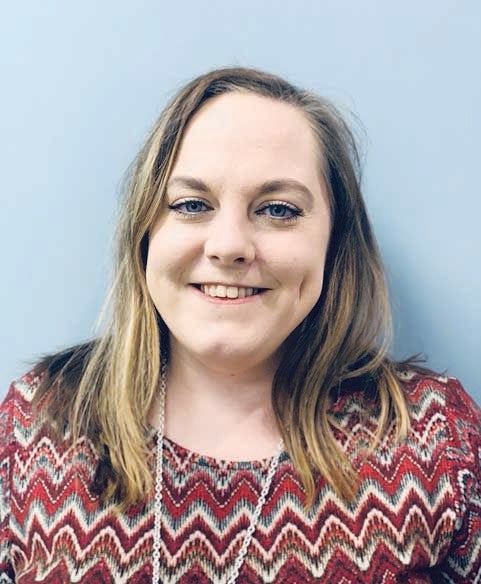Recovery starts with truth: addressing 5 common myths about addiction
Published 9:18 pm Tuesday, May 11, 2021

- Amanda Carpenter is the clinical superviser for BrightView in Nicholasville.
|
Getting your Trinity Audio player ready...
|
BY AMANDA CARPENTER
Clinical Supervisor, BrightView
It is hard to overestimate the impact of addiction on individuals, families, and communities. It carries burdens of emotion, finances, social support systems, community agencies, health care, and even the justice system.
The pandemic’s stress and isolation have worsened the situation, indicated by a 22% increase in overdose deaths in Kentucky between May 2019 and May 2020. Overdoses are an imperfect way to gauge the extent of addiction, but Jessamine County has undoubtedly been affected by what is being referred to as “an epidemic within a pandemic.”
Unfortunately, widely accepted myths make it harder to fight this epidemic.
Myth 1: People choose to be addicted
Addiction is a complex chronic disease, not a decision. You may know someone who smokes and develops heart disease. The link between these is long-established, but we recognize heart disease as an illness that requires medical treatment. We don’t criticize someone with heart disease for smoking and tell them to get better on their own. Instead, we provide scientifically proven treatment.
The disease of addiction is caused by a combination of physical, genetic, psychological, and other factors. The medical diagnosis for addiction is “substance use disorder,” and it is often linked to trauma or mental illness. Like any other disease, addiction requires research-based, professional treatment.
Nearly everyone in the U.S. who is diagnosed with heart disease can get treatment. Only about 10% of people with substance use disorder have access to effective treatment.
Myth 2: Only illegal drugs are addictive
Most people know that drugs such as cocaine, meth, and heroin are highly addictive. Surprisingly, some prescribed medications – such as opioid painkillers – can also be addictive.
Of course, it’s important to make illicit drugs less available and do everything we can to ensure that prescription medications are prescribed and used properly. It is even more crucial to ensure high quality, medically-based addiction treatment is widely available and immediately accessible. This includes personalized care plans and medication-assisted treatment when appropriate, as well as social support to help with transportation, housing, food, job skills, and the like.
Myth 3: Recovery starts by going away
Check out social media and you’ll find celebrities going to luxury spas to overcome substance use disorder. But most people can’t afford luxury rehab or a month away. With outpatient care, patients can keep their jobs and continue their daily lives, while they actively work on recovery.
Intensive outpatient addiction treatment has been proven to be more effective than residential rehab for 90% of patients and results in a lower chance of overdose than inpatient detox. Outpatient treatment is available almost immediately at local centers that provide a full range of care and services to help people reach long-term recovery.
Equally important, limited capacity at inpatient facilities often means waitlists. Outpatient addiction treatment clinics usually offer same-day and next day appointments. Many accept walk-ins.
Myth 4: Cold turkey works
Some people believe “going cold turkey” is the best way to start recovery. Going through withdrawal is inevitable, but doing so without medical supervision can be dangerous and, in some instances, deadly.
Medically managed withdrawal provides the brain stability needed to start recovery. It also helps manage cravings and symptoms that often cause relapse. Decades of research prove that medication assisted treatment combined with counseling can successfully treat substance use disorder through effective withdrawal management and ongoing care.
Myth 5: The community needs to get tougher
A common myth is that punishment, shame, and getting tough will force people to recover. This couldn’t be further from the truth.
According to the National Institute of Health, when communities treat people with addiction harshly, they are more likely to avoid treatment and even increase drug use. Research published in the Psychology of Addictive Behaviors found that empathy, respect, and compassion make addiction therapy more effective.
BrightView puts this into practice every day, treating patients with respect and kindness. We recognize that people with substance use disorder have a disease that requires proven treatment, and that compassion, support, and empathy are essential to recovery.
Active addiction wreaks havoc on individuals and their families. Addiction also burdens community services like emergency departments and jails. The good news is that substance use disorder can be treated effectively when myths are dispelled and well-researched care plans are followed. I have seen many people hurt by these myths, but I have also had the privilege of witnessing lives transformed by recovery. We can treat the disease of addiction – and benefit individuals, families, and the Nicholasville community.
Editor’s note: Amanda Carpenter is the clinical supervisor at BrightView’s Nicholasville Addiction Treatment Center at 506 N. Main St. For more information or to schedule an appointment, see www.brightviewhealth.com or call (833) 510-4357 anytime.




